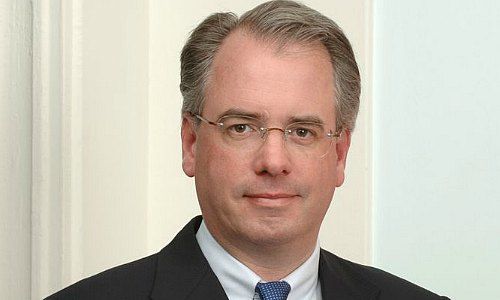UBS: Bowing to the Rules of the Market
UBS won't be able to solve its problems in asset management by selling the fund administration unit. But it will at least lower its costs.
The Global Asset Management division of UBS has not quite made it, with misunderstandings and a lack of continuity at the heart of the problem.
Asset management definitely isn't even close to becoming the third revenue pillar alongside wealth management and investment banking – despite the ambitions of Ulrich Koerner, who assumed responsibility of the unit three years ago.
Strategic Evaluation
The manager undertook a strategic evaluation of the business and concluded that it didn't make sense to keep the fund administration in-house. Thus, the bank today said it had reached an agreement with Northern Trust to sell the business to the U.S. firm. Northern Trust from now on will provide the administration of 420 billion francs worth of funds.
The U.S. buyer will do the reporting, data management, but also offer consulting services, take on product design and compliance. Some 235 UBS staff will move to Northern Trust, 80 of which in Switzerland.
New Swiss Branch of Northern Trust
Northern Trust will have to open a branch in Switzerland to provide the services it has acquired. So far, the U.S. company, based in Chicago and member of the S&P 500, only sold products in Switzerland. And all of a sudden, it will be a major player.
UBS used to be the market leader in fund administration in Switzerland. Ironically, giving up the business still has to do with a lack of size.
Structural Changes Within Business
Fund administration has undergone major changes in recent years. Being «only» the dominant player in Switzerland simply isn't enough anymore. Northern Trust for example is managing $942 billion in assets, which is quite a bit bigger than UBS. Its fund administration unit however is huge: The company provides this type of service for assets worth some $7 trillion.
Size mattered in this business ever since compliance became increasingly complex and important. Regulatory and tax aspects are pretty challenging if you are active in a dozen or so jurisdictions.
High Level of Automation
Companies successful in the business use highly complex platforms to achieve a high level of automation – efficiency being of utmost importance in this business of low margins.
Waving goodbye to fund administration also means that UBS understands that even Switzerland's largest bank can't be one of the biggest in every business segment. It makes little sense to provide the service yourself if you don't belong to the top 20 in global asset management.
Cheaper to Run
The divestment will probably help UBS to better concentrate on asset management as such. It will also make the unit cheaper to run and improve the cost-income-ratio. The sale is expected to be concluded in the second half of the year.
Cost-/Income-Ratio had been around 70 percent in the past year, a relatively high rate.
Not Enough Just as Yet
Asset management won't turn the corner by simply selling the administration of the funds. Meeting Koerner's medium-term target of 1 billion francs in pretax profit and doubling assets under management will take more.
Thanks to its global reach, UBS has a powerful sales force. But with 650 billion francs in assets under management, the company lacks the size needed to achieve the economies of scale.


























